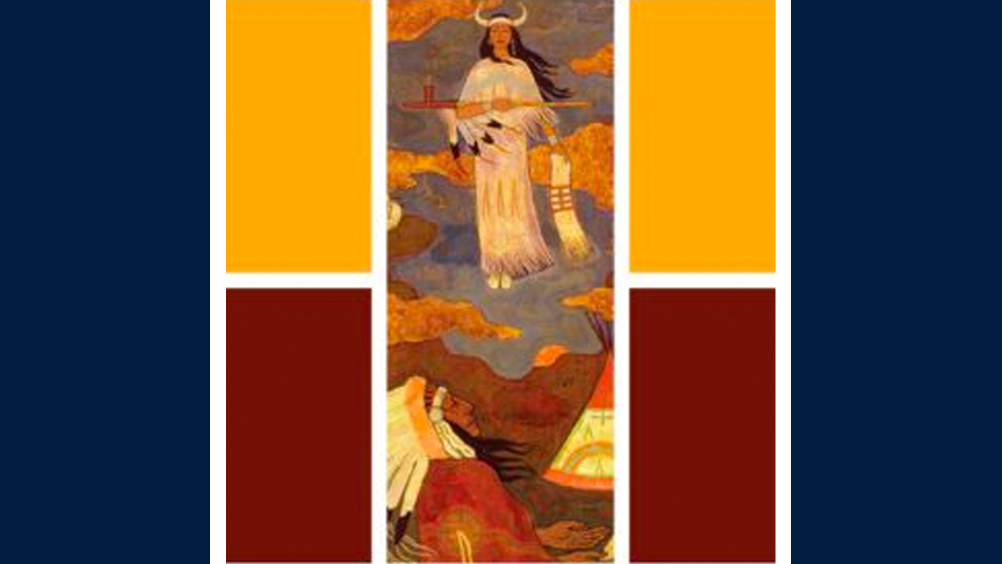New Book by Georgetown Professor at QF Sheds Light on Religious Thinker Frithjof Schuon

The work of Frithjof Schuon (1907-1998), one of the most influential religious thinkers of the 20th century, is the focus of a new book by Professor at QF partner Georgetown University in Qatar (GU-Q), Dr. Patrick Laude. In his book, titled “Keys to the Beyond: Frithjof Schuon’s Cross-Traditional Language of Transcendence” (SUNY Press), Laude explores the ways Schuon expands the applications of established religious terminology beyond their traditional definitions and analyzes the implications of these adaptations to Schuon’s own work, and to the broader world of comparative religious thought. A French version of the book is also forthcoming on September 10, 2020 under the title “Clefs métaphysiques de la Sophia perennis.”
Professor Laude, who teaches courses in religious studies at GU-Q, has written extensively on key figures of religious thought, including Simone Weil, Louis Massignon and Frithjof Schuon himself. “My main intent in this book is to show that the area of meaning of terms such as yin-yang, upāya, avatāra and others, which are key-terms in Schuon’s lexicon, may be fruitfully extended and applied as hermeneutic keys outside of their original religious soil.”
Dr. Laude describes his own research on the subject as offering both a critical examination of the texts and a comparative reading of them across religions. “I take Schuon’s books as a starting point to unpack their most relevant implications for the study of religion, and develop connections with various streams of the Buddhist, Christian, Hindu and Islamic traditions,” he explains.
While readers of this book would benefit with some understanding of Schuon’s work, in particular in the basic concepts of the “perennial philosophy” which he is known for, “You don’t have to agree with Schuon to benefit from his intriguing and far-reaching perspective, which some may actually experience as refreshing,” explains Dr. Laude. “Any reader interested in the metaphysical and spiritual dimensions of religious traditions would find the book challenging and rewarding.”
According to Dr. Laude, some readers of Schuon’s writings face stumbling blocks due to the difficulty of his work. “His language is often considered difficult and abstract because of its density and because it draws from a wide spectrum of religious traditions.” Readers also grapple with Schuon’s critique of relativism, the idea that religious belief is relative and based on the collective worldview of its adherents, rather than representative of an objective truth, which “is obviously quite at odds with most contemporary modern and postmodern trends,” according to Dr. Laude.
For scholars of Schuon, it is his ability to delve deep into the foundations of religious traditions to uncover new connections and new dimensions within and across belief systems that makes his philosophy of religion unique. “A thorough and attentive reading of Schuon’s writings may develop one’s ability to look at religions from the point of view of their ultimate and transcendent goals and highest spiritual reaches, rather than focusing on their historical and sociological contingencies, but that presupposes one takes religion seriously in its own terms, starting with its claims to transcendence,” he said. Another lesson one may draw from Schuon’s books, “is that religions cannot truly survive in the absence of a metaphysical and spiritual tradition, a point that raises difficult and critical questions for us today,” adding that “the study and use of specific religious concepts belonging to a given tradition may help us enlighten our understanding of other traditions, including our own.”
Professor Laude’s scholarly interests include comparative mysticism, poetry and mysticism, and Western representations and interpretations of Asian spiritual and wisdom traditions. A former fellow in philosophy at the Ecole Normale Supérieure in Paris, he earned a Master’s degree in comparative philosophy from the University of Paris IV Sorbonne in 1982, and a doctorate in French literature from Indiana University in 1985. He has authored over ten books and monographs, and has published numerous articles in academic journals.